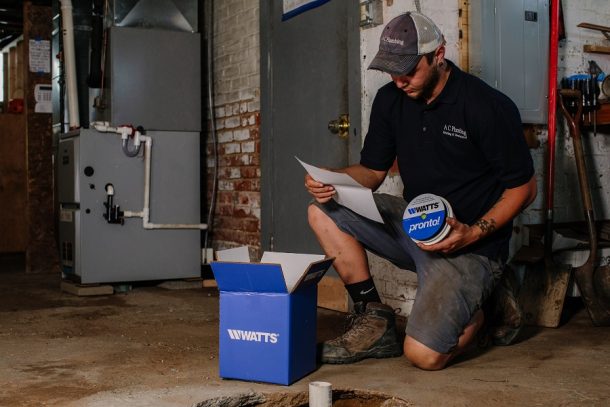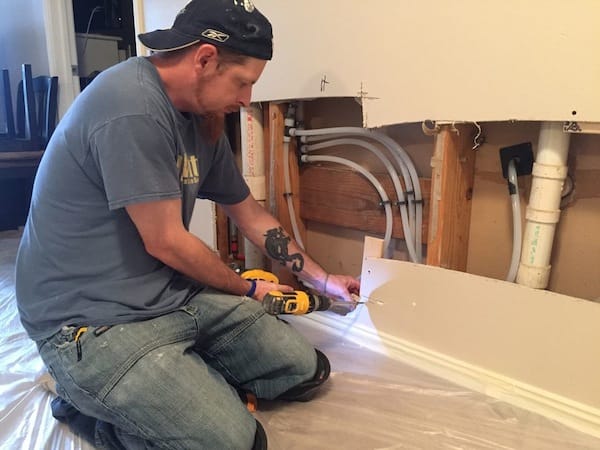Planning for emergencies is something that any worthwhile building owner will take care of, because not only is it a legal requirement, but the reward vastly outweighs the time and effort you put into this effort. Sure it may take you a couple of weeks and some expense to ensure all areas of the developing Read more
Whats New

Planning for emergencies is something that any worthwhile building owner will take care of, because not only is it a legal requirement, but the reward vastly outweighs the time and effort you put into this effort. Sure it may take you a couple of weeks and some expense to ensure all areas of the developing premises are easy to evacuate, that the exit signage is bright and easy to follow, and that reporting systems are in place; but the results could quite simply save lives. This is, of course, even more important than curating revenue as a firm.
That said, emergency contingencies are not a ‘one and done’ process, in that the task is never ‘complete.’ We need to focus on maintenance from that point on, and making sure that regular tests keep us ready. Furthermore, essential measures such as staff training, qualifying certain team members for first-aid use, and making the use of the building easy to understand and carry out is essential when necessary.
In this post, then, we’ll discuss three important emergency contingencies to hold within your business premises. This way, safety isn’t just a nice word we use, but a habit we embody.

Plumbing Failures
From time to time, plumbing failures can occur. This is why it’s important to have maintenance staff able to prevent the problem from getting worse while you wait for professional contractors to come in. Learning where your water mains is and being able to turn that off, having reporting systems in place to notify an issue; especially if staff notice it, as well as ensuring alternatives exist like portable toilets or disabled toilet access temporarily is essential. You can check out Prime Dumpster portable toilets rental for more information.
Fire Safety Inspections
Fire protection system inspection efforts are important to schedule regularly so they can overlook your entire approach. This may also culminate in checking your sprinklers, making sure your reporting alarm systems work appropriately with necessary drills, and also ensuring that additional measures, like disabled staircase access for when the elevator is locked down can be so helpful; in this case a manual lift that can be operated by two people to help a wheelchair carefully but steadily make its way down those steps is key. This way, no one is left behind, and also every potential pitfall in your evacuation process is managed properly. With measures like sprinklers, plumbing expertise is required.
Elevator Safety & Callouts
No one wants to be locked in an elevator; and so making sure your error reporting systems are in place is key. This way, you can easily call for help, or ask for a callout of technicians to let out your staff where appropriate. In some cases, you may be able to manually open the doors if properly aligned with the opening; but this is not something we should focus on without trained and qualified personnel able to distinguish the right time for an exit. In the long run, this will make a tremendous difference.
With this advice, you’re certain to perfect your emergency contingencies within your premises going forward.

Working as a tradesperson can benefit you in many ways, and there will always be people who need to use your services. There are many different trades that you can choose from depending on your interests and skills, and among these is the plumbing trade. With the right skills and training, you can enjoy a Read more
Working as a tradesperson can benefit you in many ways, and there will always be people who need to use your services. There are many different trades that you can choose from depending on your interests and skills, and among these is the plumbing trade. With the right skills and training, you can enjoy a lucrative career in this field, and you could even set up your own plumbing business eventually.
One thing to remember is that people will always need the services of plumbers, so you can look forward to an excellent level of job security. In addition, you can earn a very good income as a plumber, and you can work toward starting your own little venture once you have the right amount of experience. On top of all this, you can benefit from having a lifelong skill and expertise that will always come in useful. If you are keen to get into the plumbing industry and gain employment in this field, you can find some tips to help in the article below.

What You Can Do
There are a few key things that you can do if you want to boost your chances of gaining employment with a company as a plumber. Some of the main ones are as follows.
Get the Training You Need
One of the vital things you need to do if you want to become a plumber is to ensure you get the necessary training. It is important that you develop the right skills and earn the necessary certifications if you want to enjoy a successful career as a plumber. You will find plenty of options when it comes to places to train, so do some research and find one that suits your needs.
Sort Out a Great Resume
Another thing you should do is to sort out a great resume once you have the required skills and certifications. With a solid resume, you can boost your chances of getting work as a plumber with a company, and you can make sure you stand out from the competition. You can access cover letter templates and resume examples online, and these can prove very helpful in terms of creating your own professional and polished resume. This can then increase the chances of you getting an interview when you apply for plumbing jobs.
Get Some Work Experience
One of the other things you can try to do is to get work experience while you are still training to become a plumber. You can contact local plumbing companies to see whether they can offer any opportunities to go along with qualified plumbers to help out even if this is on a voluntary basis. This is a great way to get some experience and it will look great on your resume.
These are a few of the steps that you can take if you want to increase your chances of getting employment with a plumbing company once you have qualified.

The plumbing industry has grown steadily by 2.1% since 2017. This makes it one of the most actively growing industries in the US. By January 2022, there were 129,517 plumbing businesses operating in the US, which is likely to increase by 2023. However, running a plumbing business can be as challenging as any other establishment Read more
The plumbing industry has grown steadily by 2.1% since 2017. This makes it one of the most actively growing industries in the US. By January 2022, there were 129,517 plumbing businesses operating in the US, which is likely to increase by 2023. However, running a plumbing business can be as challenging as any other establishment. Although it has peculiar problems, some general business solutions can be applied. Here are some common problems to be aware of.

Difficulty in customer retention
Like any other entity, repeat business for plumbing works often depends on client satisfaction. When the customer is dissatisfied with the work done, the likelihood of hiring another plumbing company is higher. This makes customer retention a huge challenge for plumbing businesses. According to an IBIS World survey on this issue, three out of five customers are likely to try another plumber. It further reported that this often happens when the customer or client is unhappy with a previous job.
Indeed, it is a very competitive industry with high customer expectations. So, if you’re struggling with customer retention, perhaps, it will be worthwhile to assess your services. For example, do you frequently attract people with unbelievable discounts and offers? If that is the case, you may rather be putting potential clients off. Those unbelievable discounts may be interpreted as sub-standard service. Furthermore, do you have hidden charges only known to the customer after the job is done? Once again, if you answered in the affirmative, it may be time to review that strategy. Many things often account for why your plumbing business cannot retain customers. However, when you identify those loopholes, things could turn around for the better.
Problems with pay systems
A fundbox.com survey stated that 50% of plumbers face cash flow problems. This, however, applies mostly to licensed freelance plumbers as those who work as employees for companies often do not experience this problem. It is even worse for plumbing businesses with multiple branches in different locations. It takes a lot of effective management skills to handle so many workers in different locations. Without it, your business may struggle with making timely payments, among other things. You will need an effective payroll system to avoid any delays. Moreover, because many plumbing companies pay their workers on a commission basis, this is necessary.
Non-existent or poor target marketing
First of all, it’s already been established that the plumbing sector is highly competitive. For whatever reason, it’s been discovered that some plumbing businesses fail to work on effective marketing. The truth here is that people do not seek information about plumbing businesses until they’re in dire need of one. However, if your target marketing is done right, you will have clients calling for routine plumbing checks.
Target marketing involves studying the demographic of your business’ location. If it is mainly a residential area, your marketing can focus on homeowners living in really old properties. The reason is that old houses often have hidden plumbing issues usually discovered when things get out of hand. By positioning your business as the go-to plumber, you increase your business’s chances of receiving more calls for old home jobs.
With proper planning and effective strategies, most of these problems can be avoided in your plumbing business. No business operates without glitches. However, what you do to avoid or minimize them can influence your success.

There are many ways to generate new business for a plumbing company, but the most important is to focus on generating quality leads. A successful plumbing company should have a strong marketing strategy and be able to generate leads and interest in their services. Let’s take a look at how. How Social Media Can Help Read more
There are many ways to generate new business for a plumbing company, but the most important is to focus on generating quality leads. A successful plumbing company should have a strong marketing strategy and be able to generate leads and interest in their services. Let’s take a look at how.
How Social Media Can Help Your New Company Grow Fast
Social media marketing is a powerful tool that can help your new company grow fast. It can be used to generate awareness and engage with your target audience. Social media platforms are often like the Wild West. With so many platforms out there, it can be hard for a new company to find its place in the social media world. One way to stand out from the crowd is by creating content that is unique and relevant to your target audience’s interests. This will also help you build trust with them and gain their trust in return.

How to Get Conversions and Leads with Your Plumbing Company
The first step in generating leads is to create a website that is optimized for conversions. This means having relevant content on the front page and making sure that it has the right call-to-action button. You should also have a landing page with an opt-in form that encourages visitors to subscribe for future updates.
The next step is creating compelling content for your website. You should make sure that the text on your site is engaging and informative enough so people are willing to subscribe to receive more information about your company’s services.
How to Set up a Plumbing Company Website
With the help of a website builder software, you can create a website in minutes. The best part is that it is not necessary to be a web designer or developer to set up your own website. There are many benefits that come from using a website builder like Wix. A few of these benefits are:
- You don’t need to know HTML or CSS
- You don’t need to know about web hosting
- You get custom design options for free
- There are no monthly fees for hosting
What are the Best DIY Marketing Techniques for Plumbing Companies?
Plumbing companies are usually in a competitive market and they need to be on top of their game. They are always looking for new marketing ideas that can help them stand out from the competition. Here are some of the best DIY marketing techniques to follow:
– Make sure you have a blog that is updated regularly with content related to your industry. It will be easier for people to find you when they search online.
– Make sure you have a well-designed website, one that is user-friendly and easy to navigate. This will help increase your visibility online, especially if it is optimized for mobile devices.
– Create an email list and send out regular newsletters about topics related to your business, such as recent news or upcoming events in your area.
How to Promote Your Brand with SEO
There are many digital marketing tools that can help you in promoting your brand and SEO is one of them. It is important to know what works best for your business so you can be more effective with your marketing efforts. Promoting your brand with targeted marketing and SEO requires a lot of work. If you’re unsure how to get started, an expert like sofiaseo.com can help you to get underway. There are many tactics that you can use to promote your brand on the internet and offline.
SEO is the process of affecting the visibility of a website or a web page in organic results on search engines’ web pages by increasing its relevance in search engine results pages. It can be one of the most beneficial parts of your strategy to get started with.
The Process of Generating New Business with Referrals
Referrals are the best way to generate new business for your business. It is a process of generating leads and it doesn’t require any marketing or advertising. A referral is when a customer of your company refers a new customer to you.
When someone who has never heard of your company goes to the website, they find out that they can get 10% off their first purchase by using their referral code. They then share this code with friends and family members who want to save money on their purchase too. These people then go to the website and use the code, which generates a lead for your company

If you want to set up a successful plumbing business, then you are not alone. So many people are in the same situation as you are right now, but if you do not take the right steps, then you may find that you end up falling behind. If you want to stop this from being Read more
If you want to set up a successful plumbing business, then you are not alone. So many people are in the same situation as you are right now, but if you do not take the right steps, then you may find that you end up falling behind. If you want to stop this from being the case, then you need to try and make sure that you follow this guide. Take a look below to find out more.

Setting Goals
First of all, you have to make sure that you ask yourself. Why do you want to start a plumbing business? Do you want to grow your income? Maybe you want to make your work way more flexible so that you can spend more time with your family. Either way, you have to be crystal clear on the reason why you want to start a business. If you can do this, then you will be able to build everything on a solid foundation. You may also find that when you have your goals and your general objectives set, and when things become clear in your mind, you can devote way more mental energy to the more practical aspects of running a company.
Create a Business Plan
Do not expect to be able to take your business off the ground if you do not have a good plan. You have to remember that it takes time, but it’s time well spent. If you go into a business without a solid plan, then you may find that you end up struggling overall and that you are simply not able to get the sales or the customers you need. A good business plan will help you to make the right decisions as you go, and it will also give you a solid structure to work from. Ideally, your plumbing business plan should give you growth opportunities as well as marketing strategies. It should also give you financial support, long-term goals to aim for, and more. If you can do this, then you will soon find that things end up working in your favor.
Training and Qualifications
People do not like to hire plumbers who are not qualified. You probably know this already and you might even have the right training, but at the same time, you have to consider your qualifications too. You need to make sure that you have the skills required to push things forward and that you meet all of the minimum requirements. If you don’t, then you may find that it becomes harder to get more established in the long run. If you can gain more qualifications, then this means that you will be able to offer more services in the future and this gives you the chance to make more money overall. If you aren’t sure what qualifications you need, then look into central heating, water recycling and oil.
Finances
The next thing that you want to do is try and get serious about the capital and the resources that you have. You have to remember that starting your own company is not cheap and you will always need to have some kind of outlay when it comes to cash. If you are an independent plumber, then some of your major costs will come from investing in a car and any other related equipment. The scope may vary depending on what service you intend to provide, but either way, it’s vital that you consider points like this. if you want to fund your venture then you have two options here. You can either fund your own venture or you can find cash from another party. If you are not lucky enough to have some cash on hand for your own company, then you will need to approach other banks and lenders about getting a business loan. Almost every major bank will have some kind of business department and they can give you the help you need, amongst a range of credit lines. The bank will want to know that you have a plan though, so be sure to keep this in mind if at all possible.
Marketing
In your business plan, you will also have to detail how you are going to market your business. You have to be able to show the banks how you are going to invest in your idea and how you are going to attract customers. You may not be able to hire a full marketing department to support your venture early on, but there are other options so be sure to look into them. If you want to find out more, then click the link.
Purchasing your Equipment
If you do not have the equipment you need right now, then you will need to make an investment. This is going to be the biggest cost that you face. The administrative side of setting up a business is usually relatively low, but you will need a car if you do not have one already. Normally plumbers will have a van or a large vehicle where they can house all of their tools. If you are running a mobile business, then this is especially the case, and you need something big enough so you can have everything that you need on hand. Equipment costs can vary quite a lot here, but at the end of the day, a lot of it will depend on your needs and your general preferences. When it comes to your equipment, you should not try and cut costs. If you do, then you may end up paying for it later. Cheap tools are not reliable, and you may find that they end up deteriorating far more when compared to quality tools. You may be able to get finance on some good tools too, so do not be afraid to look into things like this.
So, running a plumbing business is not easy and at times you may find that it is incredibly expensive. At the same time though, you have to remember that it can be a very lucrative business and it is always possible for you to make all your cash back, plus profit.
